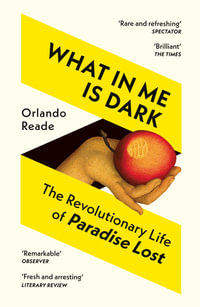Phillis Wheatley (1753-1784) was the first black American to publish a book and enjoyed international fame during her short life. Yet despite the considerable achievements of this young poet, her work has never received its critical due. This collection restores her to her proper place in America''s literary heritage. Together with the editor''s essay on ''Phillis Wheatley''s Struggle for Freedom in Her Poetry and Prose'', the collection reveals her to have been a writer who passionately sought freedom, both for herself and for her people, through her work, and who, in her contemplative elegies and use of the poetic imagination to escape an unsatisfactory world, anticipated the Romantic movement of the following century.
Industry Reviews
"Welcome and impressive."--American Literature
"Greatly expands the Wheatley canon with neglected and variant poems and with several of her letters."--The Women's Review of Books
"Never before reprinted outside of original publication."--Publishers Weekly
"Questions of race, gender, and literary form intersect in the poetry the Schomburg Library presents. Phyllis Wheatley's poems are read freshly in the light of what John C. Shields calls her 'poetics of liberation.'"--Jean Fagan Yellin, The Washington Post Book World
"Launched two traditions at once--the black American literary tradition and the black woman's literary tradition..."--Henry Louis Gates, Jr., from the Foreword to the Schomburg Library of Nineteenth-Century Black Women Writers.
"Wonderful."--Eric J. Sundquist, The New York Times Book Review
"It is my objective in this volume to do what I can to provoke serious interest in reading the fine poetry and prose of this harshly underrated black American poet...After satisfying her thirst for knowledge of words by reading virtually all the British and American poets of her century, this poet discovered for herself her own idiom....What Wheatley essentially does is to decide that this world, which allows slavery to remain legitimate, is unsatisfactory to
her; so she manipulates the conventions of neoclassicism to build in her poems another, acceptable world. This use of poetry to achieve freedom constitutes a poetics of liberation."--John Shields, from
his Preface
"Welcome and impressive."--American Literature
"Greatly expands the Wheatley canon with neglected and variant poems and with several of her letters."--The Women's Review of Books
"Never before reprinted outside of original publication."--Publishers Weekly
"Questions of race, gender, and literary form intersect in the poetry the Schomburg Library presents. Phyllis Wheatley's poems are read freshly in the light of what John C. Shields calls her 'poetics of liberation.'"--Jean Fagan Yellin, The Washington Post Book World
"Launched two traditions at once--the black American literary tradition and the black woman's literary tradition..."--Henry Louis Gates, Jr., from the Foreword to the Schomburg Library of Nineteenth-Century Black Women Writers.
"Wonderful."--Eric J. Sundquist, The New York Times Book Review
"It is my objective in this volume to do what I can to provoke serious interest in reading the fine poetry and prose of this harshly underrated black American poet...After satisfying her thirst for knowledge of words by reading virtually all the British and American poets of her century, this poet discovered for herself her own idiom....What Wheatley essentially does is to decide that this world, which allows slavery to remain legitimate, is unsatisfactory to
her; so she manipulates the conventions of neoclassicism to build in her poems another, acceptable world. This use of poetry to achieve freedom constitutes a poetics of liberation."--John Shields, from
his Preface


























